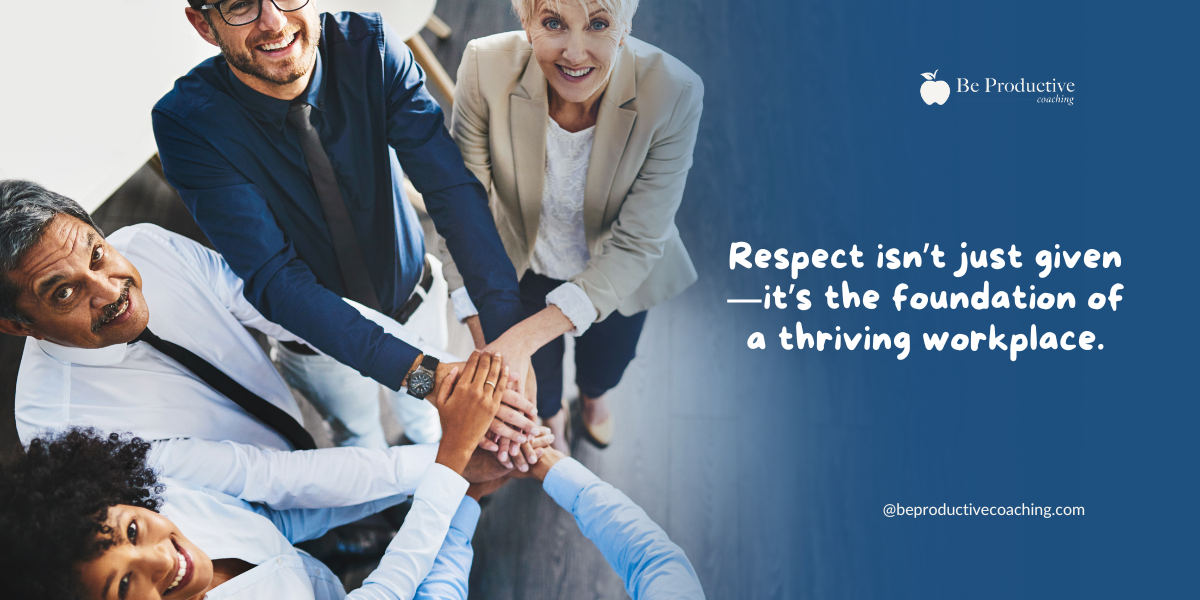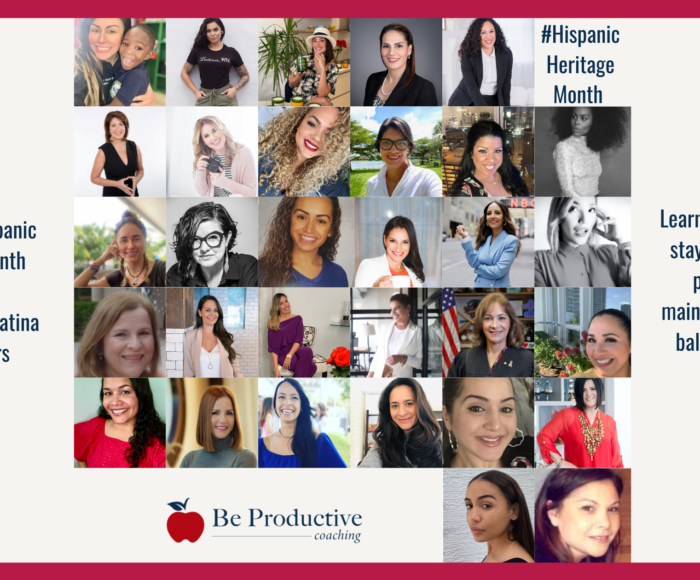The Role of Respect in Workplace Well-Being

The Role of Respect in Workplace Well-Being
The Role of Respect in Workplace Well-Being
Respect isn’t just about being polite—it’s the foundation of a thriving workplace. I recently experienced firsthand how a lack of respect for communication and collaboration can disrupt a team’s ability to function effectively.
A Lesson in Respect from a Volunteer Ministry
This January, I spent the month in North Carolina working remotely while my husband was on assignment. In addition to my work, I volunteer at my parish and lead a women’s ministry. Since I was away, I continued to lead our weekly meetings via Zoom. One week, due to a business conflict, I asked two of the women to take over different responsibilities—one to lead the spiritual reflection and the other to coordinate an upcoming fundraising event.
While the spiritual reflection went smoothly, the fundraiser planning quickly spiraled into chaos. Instead of a productive discussion, it became a power struggle. People spoke over one another, different ideas clashed without compromise, and ultimately, the meeting ended with frustration and unresolved tensions.
After speaking with a few of the women afterward, I realized the core issue: there was no respectful exchange of ideas—just individuals pushing their own agendas. This experience made me reflect on how respect plays a crucial role not just in volunteer organizations, but also in the workplace.
Why Respect Matters at Work
In the workplace, respect goes beyond civility—it’s about valuing others’ contributions, listening actively, and fostering collaboration. When employees feel respected, they experience greater psychological safety, engagement, and productivity. On the other hand, workplaces that lack respect see more conflicts, lower morale, and reduced innovation.
According to Gallup’s State of the American Workplace Report, employees in environments where they feel respected are:
✔ More likely to experience better mental health and job satisfaction
✔ Less likely to feel burned out or disengaged
✔ More inclined to stay engaged, show initiative, and contribute to company goals
This reinforces that respect isn’t just a “nice-to-have” but a business imperative that directly impacts employee retention, performance, and overall workplace culture.
Building a Respectful Workplace Culture
Creating a respectful culture starts at the top. Leaders must model respect in their interactions, setting a precedent for the entire organization. This involves clear policies, consistent behavior, and a genuine commitment to valuing every team member.
Here are actionable steps leaders can take to foster respect:
✔ Model respectful behavior – Demonstrate respect in all interactions, from how you listen to how you respond.
✔ Promote active listening – Encourage employees to listen to each other, validating different perspectives.
✔ Recognize achievements – Regularly acknowledge the contributions of team members and celebrate successes.
✔ Encourage open communication – Create channels for employees to voice concerns, ideas, and feedback.
✔ Provide continuous learning opportunities – Offer training on respect, diversity, and inclusion to ensure that respect is consistently reinforced across the organization.
When leaders prioritize respect, it creates a ripple effect—shaping a work environment where employees feel heard, valued, and empowered to collaborate effectively.
How Positive Intelligence Strengthens Respect and Teamwork
One of the most effective ways to enhance workplace respect is by strengthening emotional intelligence (EQ)—and that starts with Positive Intelligence (PQ).
PQ helps individuals recognize and shift away from negative, reactionary thinking (Saboteurs) and instead activate their Sage Powers—such as empathy, curiosity, and innovation—leading to:
✅ Better Communication – Employees become better listeners and more open to feedback.
✅ Stronger Collaboration – Teams work together rather than against each other.
✅ Increased Innovation – A culture of respect fosters creative problem-solving.
By improving mental fitness, Positive Intelligence helps leaders and teams build a foundation of respect that leads to higher workplace well-being, engagement, and productivity.
Join Our Next Positive Intelligence Bootcamp – Starts March 1st!
If you’re looking to strengthen emotional intelligence, communication, and collaboration in your workplace, our 7-week Positive Intelligence Mental Fitness Bootcamp is for you.
📅 Starts March 1st | Sign up by February 17th to receive:
✔ Two complimentary 30-minute coaching calls
✔ One year of access to the Positive Intelligence app
✔ A money-back guarantee if you’re unsatisfied after two weeks
Transform the way you lead and interact—starting with your own mental fitness. Let’s build a workplace (and life) where respect, collaboration, and well-being thrive.
📩 Contact Be Productive Coaching to register or learn more!





